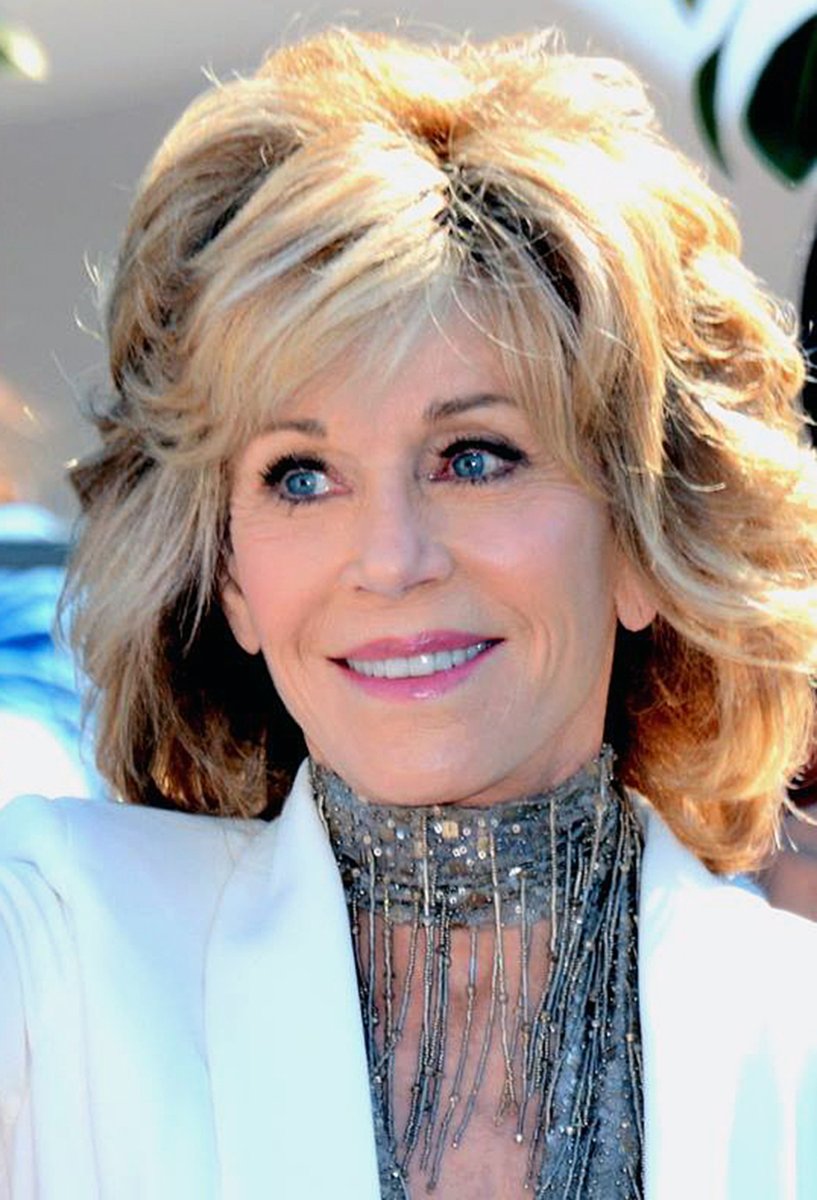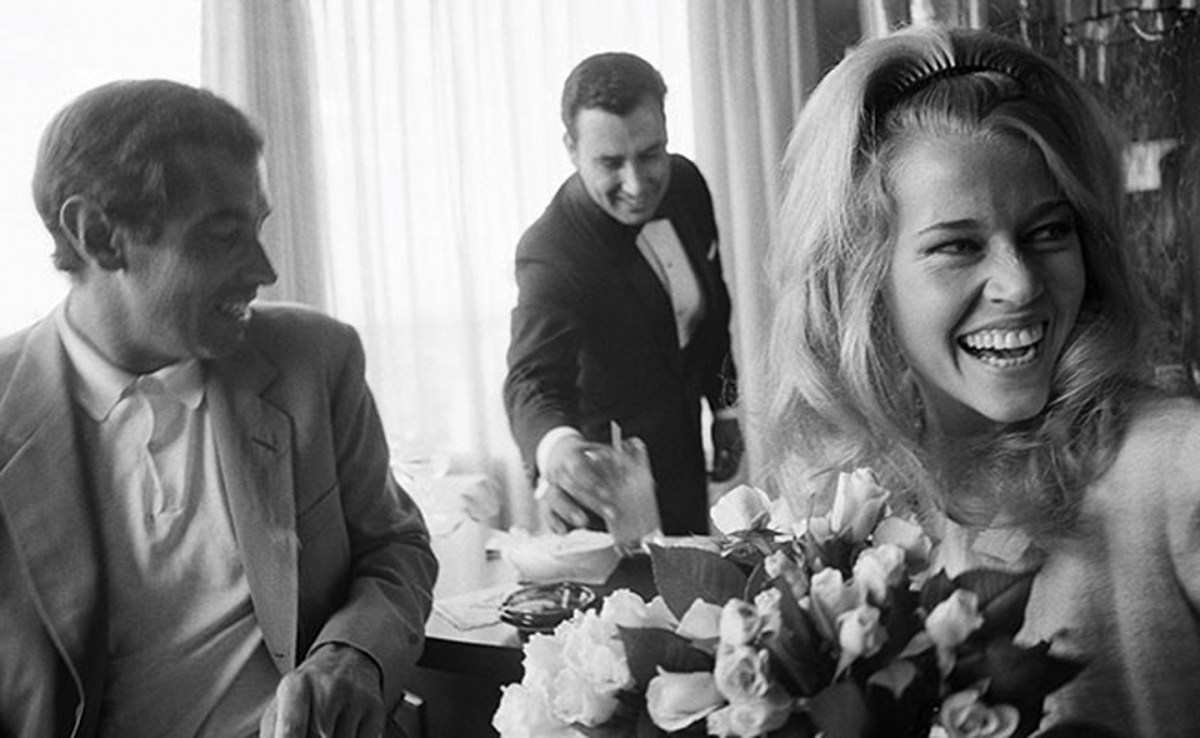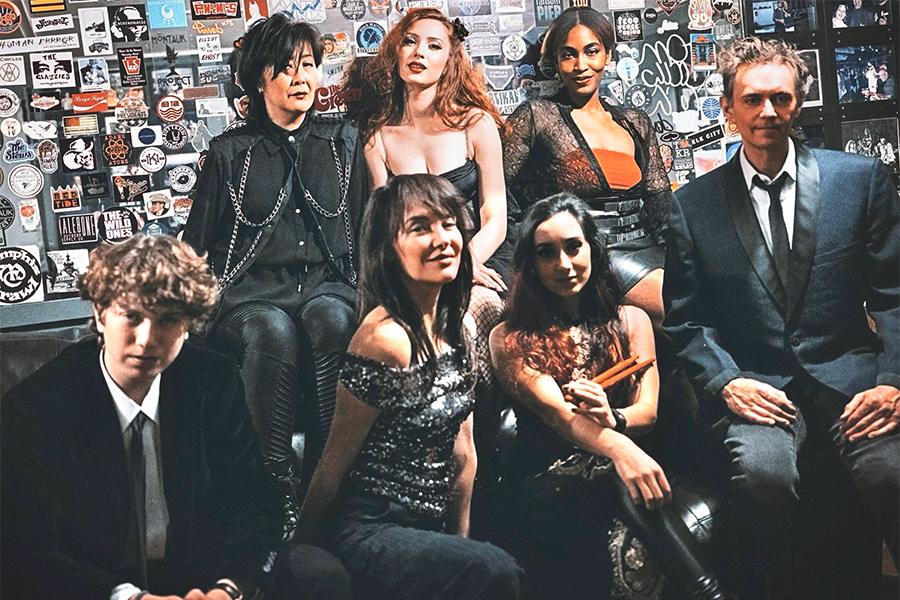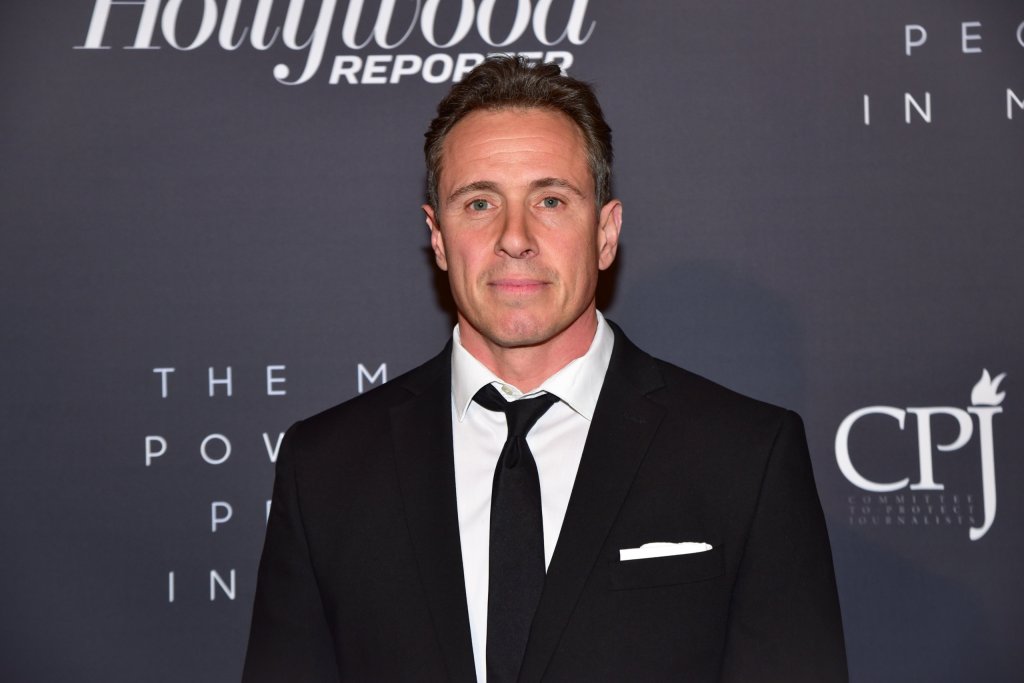Interview With Jane Fonda: Actress, Activist, Octogenarian

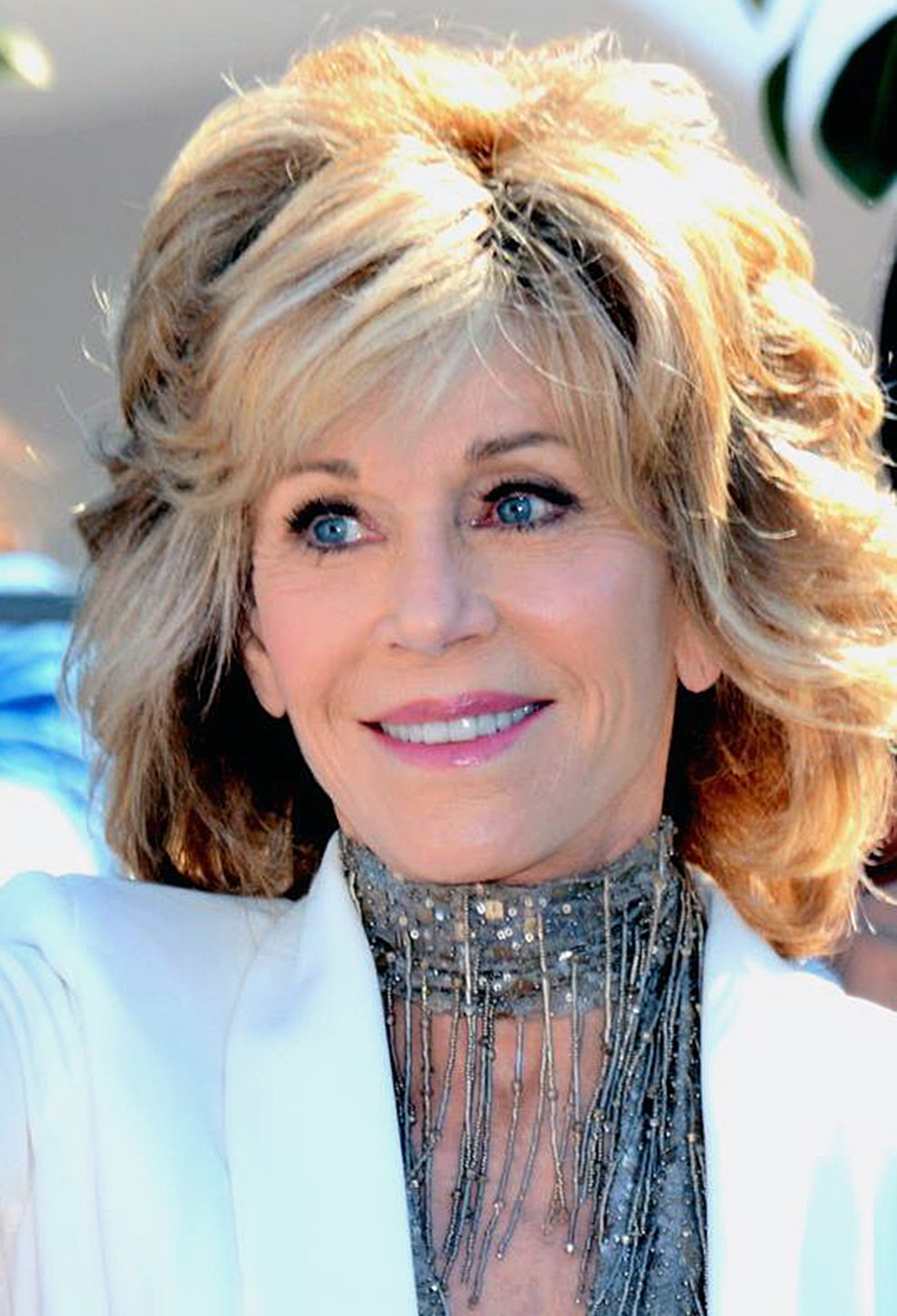
With Jane Fonda, there are no in-betweens. Her life has been lived in the public eye and, popular or unpopular, she has always gone full steam ahead, whether sinking her teeth into a role or marching on the frontlines of a civil movement.
Now, the award-winning documentarian and Sag Harbor resident Susan Lacy (Spielberg) has created an intimate portrait of the iconic actress in the HBO documentary Jane Fonda in Five Acts. There will be a sneak preview of the film at Guild Hall followed by a Q&A with Lacy and Alec Baldwin on Saturday, September 22, at 6 PM as part of the Hamptons International Film Festival.
“Girl next door, sex icon, activist, fitness tycoon: Oscar-winning actress Jane Fonda has lived a life marked by controversy, tragedy, and transformation,” reads the film’s press release. She’s “been hated as Hanoi Jane, lusted after as Barbarella, and heralded as a beacon of the women’s movement.” In the film, Fonda speaks candidly and frankly about her life and her missteps. “She explores the pain of her mother’s suicide, her father’s emotional unavailability, 30 years of bulimia, and three marriages to highly visible, yet very different men.”
Along with performing and activism, Fonda has also written several books, including My Life So Far (2005) and Prime Time (2011).
This week, The Independent spoke exclusively with Fonda.
The common thread throughout your entire adult life is that you’ve been willing to put everything on the line, to risk your popularity and your reputation, for something that you believed in. Your passion for activism — what was that rooted in?
Well, my dad had really good values, as reflected in many of the movies he made — The Grapes of Wrath, The Oxbow Incident, 12 Angry Men. He liked to play the roles of guys who were sticking up for the underdog, who were fighting for justice, and I knew that those were the roles that made him come alive and feel proud, although he never talked about it. So I guess they’re my father’s values that I have in me.
And then, because I was such a believer in what the country was doing — I swore if our soldiers were fighting someplace, if our flag was planted someplace, then this was the side of the angels — that when I was made, by American soldiers, to see the reality of what was happening in Vietnam, I totally flipped.
I think the more you feel one way, if you’re proven that what you believed in was wrong, you can totally go the other way. And when I do something, I tend to go all the way. I just became almost a full-time activist during that time. I was so angry. It was so shocking to me.
Once I understood Vietnam, then read the Pentagon Papers, and then I began to see the connections — like everyone does — with a lot of other things like race and patriarchy and so forth, I threw myself into it.
I kind of thought by the time I turned 80, that I would be able to start gardening or something, but with the elections of 2016, it’s just not possible. I’m back on the barricades more than I have been since the mid-’70s, I think.
I know that currently some causes near to your heart include increasing the minimum wage, especially for restaurant workers. Can you elaborate on that?
A few months after the election, about 40 people who run organizations and movements and activists gathered together in upstate New York to try to figure out ‘What are we going to do?’ And one of them was Saru Jayaraman, the founder and director of Restaurant Opportunities Center, fighting for One Fair Wage, so when the minimum wage goes up, it includes tipped workers. It currently doesn’t in all but seven states.
The federal mandates of the salary for a tipped worker is $2.13; you can’t live on that. So they’re totally dependent on tips, which also means they’re totally vulnerable to treatment by consumers, by customers. The restaurant industry has the highest rate of sexual harassment. This has kind of coincided with the Me Too movement. The fact is, in the seven states that do have One Fair Wage, sexual harassment is cut in half. I hooked up with Saru; she’s quite amazing.
At my age, I’m not going to found any new organizations, but what you can do with celebrity and money is align yourself with someone who is talented and is doing something that you think is going to make a difference.
The fact that she got the One Fair Wage measure on the ballot in Michigan also means that more people will turn out to vote themselves a raise, so it’s an electoral strategy as well.
How about your involvement in reform for the Los Angeles County jail system?
About a year and a half ago, I read Michelle Alexander’s book, The New Jim Crow: Mass Incarceration in the Age of Colorblindness. She was one of the people at that gathering in northern New York. The book, it knocked me. I mean, I know that there’s a disproportionate number of people of color in jails, but I didn’t really understand how intentional it is, and how deliberate, and what it means. The book really did for me what the soldiers did for me when they explained Vietnam to me. The book had a big effect on me.
And then Patrisse Cullors, the cofounder of Black Lives Matter, came out with a book, When They Call You A Terrorist: A Black Lives Matter Memoir, which I read, and I got together with her because she was working on a ballot measure called “Reform LA Jails,” to try to prevent the passage of a $3.5 billion bill to build a “mental health jail” — what an oxymoron! — and use that money instead for proper mental health facilities and housing for the homeless.
These women are very charismatic and strategic leaders, and I’m working with them on jail reform, criminal justice reform, and fair wages for restaurant workers.
I’m also canvassing for Seattle Congresswoman Pramila Jayapal. She’s a fiery, effective, brilliant, brave congresswoman, so I’ve kind of hooked up with her too.
Switching gears to talk about your career a little . . . Is there anyone you’ve ever worked with that you were in awe of? Anyone who made your heart beat a little faster and your mouth go dry?
Working on Julia with Vanessa Redgrave was one example. That was a big deal for me, because I really admire her.
I’ve heard you named your daughter, Vanessa, after her, and that was years before making Julia.
Yeah, I did. Also for the alliteration, Vanessa Vadim. (Laughs.) But the name definitely popped into my head because of my admiration for Vanessa Redgrave.
Also working with Katharine Hepburn and my dad in On Golden Pond — that was a big deal.
Recently, you’ve had a boon of great roles, from “Grace and Frankie” to “The Newsroom” to Book Club. Are you still searching for a great acting part?
(Laughs.) No. I mean, I feel grateful at my age that I have a steady job with “Grace and Frankie.” I’m grateful that I’ve been able to do successful movies like Book Club, and before that, Our Souls at Night, and now I’m working on a sequel to 9 to 5, but I’m more focused on what’s happening in the world and what I can do about it.
I feel another book brewing in me as well. I just read Sally Field’s new book and it’s fantastic. It’s profound and raw and moving. So, I think more about another book than another role.
In the making of the documentary, what was the hardest thing to face? And what was the most fun to look back on?
I wrote my memoir, and then Prime Time, which was also fairly autobiographical, so I’ve gone over the material before. It’s always scary to do it on film, but I trusted Susan. I made sure, before I agreed to do it, that she knew that I didn’t want it to be a celebrity biography; that’s not who I am. It had to be about a journey, about my whole life, not just making films. And it is, and I’m grateful for that.
I’ve made plenty of mistakes in my life, and it’s hard watching that on film. We’re premiering it here [in Los Angeles] tomorrow night, and I’m nervous.
Why five acts?
Susan did something interesting. She divided the documentary into five acts — my father, my first husband, my second husband, my third husband, and then finally I come into my own voice. The last chapter is just called “Jane.” And it makes sense. It was a good way to organize the material she has.
And looking back, what is the biggest personal obstacle you’ve had to overcome?
Getting over the feeling that you’re a fraud, getting over the feeling that you don’t deserve love and respect. It has nothing to do with objective reality, it has to do with what you were made to believe when you were young. That sense of who you were: If you’re not perfect, you’re not going to be loved. Most of the men in my life told me I was superficial.
It took me until I was a single woman in my 60s to feel like I was starting to become who I was meant to be. We’re all works in progress, and even though I’ve never felt better than I do now, at 80, I’m still a work in progress. And I like to talk about that, because I think it gives women hope.
For more information about the screening of Jane Fonda in Five Acts, visit the Hamptons International Film Festival website at www.hamptonsfilmfest.org.
bridget@indyeastend.com

